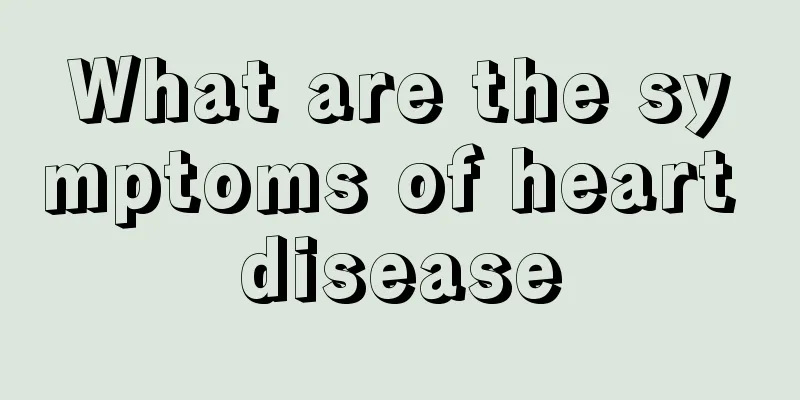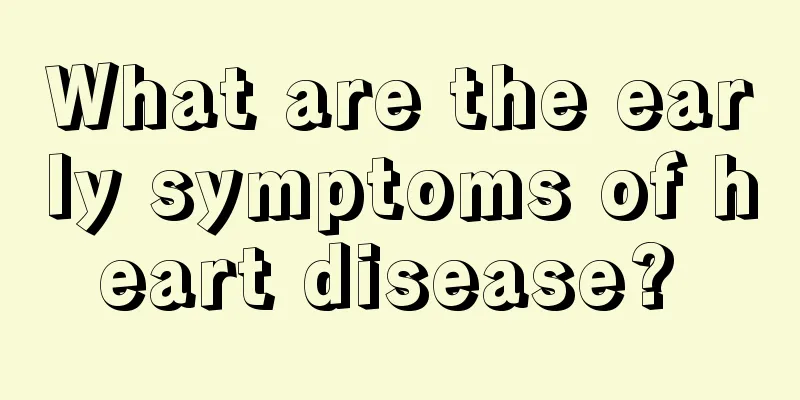What are the symptoms of heart disease

|
Nowadays, people are under great pressure in life and are facing the risk of unemployment at any time. Therefore, for some people whose heart cannot bear well, the probability of disease is getting bigger and bigger. In order to make the disease be discovered faster, it is necessary to understand the symptoms. Here are some common symptoms of heart disease. 1. The chief complaint is inconsistent with the objective examination. The patient feels severe palpitations, but 24-hour ECG detection or ECG monitoring shows no obvious arrhythmia. The patient feels short of breath after slight activity, but cardiac ultrasound shows good cardiac systolic and diastolic function. 2. The symptoms are numerous and cross-systemic. For example, there are cardiovascular symptoms such as chest tightness, shortness of breath, chest pain, etc., as well as a large number of other system symptoms involving the central nervous system, digestive system, urinary system, respiratory system, etc., which are difficult to explain with simple heart disease, such as dizziness, headache, insomnia, abdominal distension, indigestion, constipation, diarrhea, urgency, polyuria, sweating, hand tremors, numbness of hands and feet, preference for deep breathing, inability to go to closed environments, etc.; sometimes there are other strange complaints of discomfort, and the patients describe them very vividly, but the doctors become more confused the more they listen. These symptoms, which are not written in medical textbooks, often make experienced expert doctors feel embarrassed, and they can only let the patients go to the relevant departments for consultation to solve the problem. 3. Patients often have many concerns. They worry that the disease cannot be diagnosed and that heart disease will be dangerous sooner or later. They also worry that going for related examinations is unsafe and will cause pain. They worry most about adverse drug reactions. They repeatedly study the instructions for various drugs and become more and more afraid the more they read. They dare not take the drugs or change them frequently. In fact, these are just surface phenomena. If the doctor can be more patient and careful, show more care and encouragement, and gain the patient's trust, he or she may ask or let the patient speak out all kinds of emotional and psychological problems deep in their hearts, even if the patient himself or herself is not aware of such emotional and psychological problems, such as: 1. Excessive worry about illness (patients with high blood pressure worry about having a cerebral hemorrhage or a stroke and being bedridden, patients with coronary heart disease worry about myocardial infarction, patients with ventricular embolism worry about sudden death, etc.); 2. Being too nervous, like a frightened bird, easily frightened (slightest sounds, especially sudden sounds, can frighten the heart, even the ringing of a cell phone, the sound of a refrigerator starting up, the ticking of a clock, and hearing others quarreling, getting sick, or having an accident can frighten oneself to the point of trembling); |
<<: What can cardiac ultrasound detect? Is there any heart problem?
>>: What are the treatments for urethritis
Recommend
How to take lactoferrin
Lactoferrin is an extremely important substance f...
The diagnosis method of polycystic kidney disease is like this
As we all know, polycystic kidney disease is extr...
What are the characteristics of early symptoms of liver cancer in men
The early symptoms of liver cancer in men are dif...
What to do with early stage nasopharyngeal cancer? Can it be cured?
Nowadays, the incidence of cancer is getting high...
What are the latest cervical cancer screening methods
Cervical cancer is a disease that causes great su...
How can women prevent ovarian tumors
How should we prevent ovarian tumors in women? In...
What is the reason for the echo in the ears
Many people in life may experience symptoms of ec...
Why are there so many white spots on the goldfish?
Today's society is constantly developing, and...
How to master the degree of exercise to prevent bone cancer
How much exercise should be done to prevent bone ...
How terrible is the harm of melanoma
Melanoma is a common disease in clinical practice...
Can I eat dates if I have skin allergies?
Jujube is actually a kind of fruit that grows in ...
Chinese medicine treatment of pancreatic cancer patients should pay attention to the following points
Traditional Chinese medicine is one of the treatm...
How long does it take to quit smoking and get rid of the addiction
Quitting smoking is a long process. In the first ...
How long is the incubation period of lung cancer? What are the early symptoms of lung cancer?
Lung cancer has a high incidence and mortality ra...
What are the serious hazards of colon cancer?
Many friends are not very clear about colon cance...









